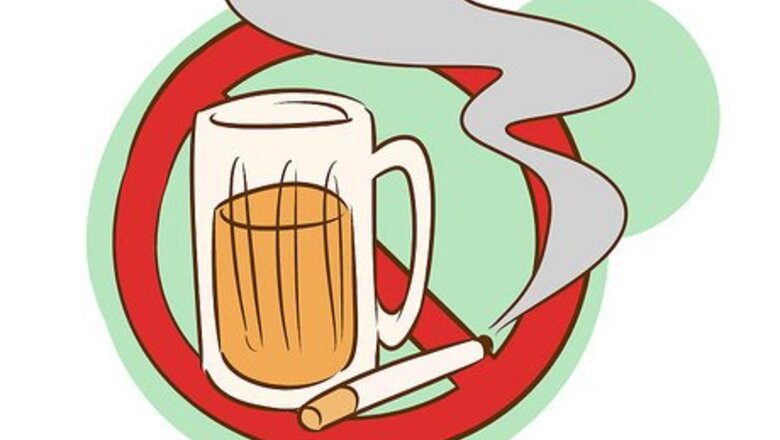
views
Diet
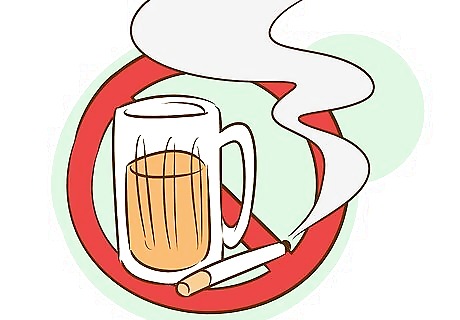
Minimize your alcohol consumption. Excessive alcohol use is one of the most common causes of liver damage, but even moderate amounts of alcohol can damage liver cells over time. Moderate alcohol use is defined as one drink per day for women and two drinks per day for men. Stay under this limit to improve your liver health and improve your ALT levels. If you already have some form of liver disease, you should cut alcohol from your diet completely.

Drink more coffee. Surprisingly enough, early research suggests that drinking a cup of coffee every day can help lower your risk of liver disease. Since ALT levels and liver damage are so closely related, drinking coffee may also have a positive effect on your ALT amount. Note that these studies are fairly recent, however, so the link between ALT and coffee is still uncertain. Green tea may also improve liver health. It contains plant antioxidants called "catechins," which are believed to improve many bodily functions, including liver function.

Eat organic foods. If your ALT levels are notably high, consider switching to an organic diet. Most people can tolerate chemical food additives, but for those with high ALT levels and liver damage, these chemicals will only worsen your current situation. The liver filters toxins out of your body, but when it has to filter out too many possible toxins, it weakens and declines. By law, organic foods are free from genetically modified organisms, synthetic pesticides, synthetic fertilizers, antibiotics, growth hormones, and similar drugs, making them easier for your body to process.
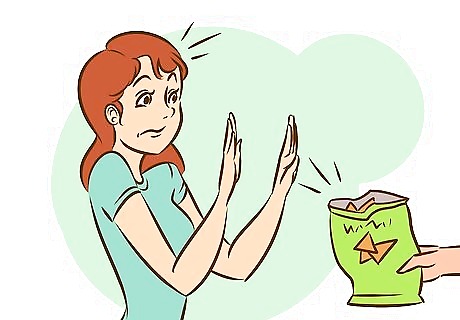
Limit junk food. Many sugars and fats also place stress on the liver, so cutting them out or limiting them can improve both your liver function and ALT levels. In particular, reduce the amount of fructose and trans fats you consume. Fructose is found in soda and fruit juice. Trans fats are found in fried foods, fast food, and processed foods.

Consume more fruits and vegetables. Many fruits and vegetables naturally detoxify the body. In doing so, they relieve stress from your liver, allowing it to heal and lowering your ALT levels as a result. Sulfur-rich vegetables, including onions and garlic, are notably helpful. Cruciferous vegetables, like broccoli, kale, collard greens, Brussels sprouts, cabbage, and cauliflower, are also among the best for improving ALT amount. Other fruits and vegetables linked to improved liver health include grapefruit, beets, leafy greens, avocados, and lemons.
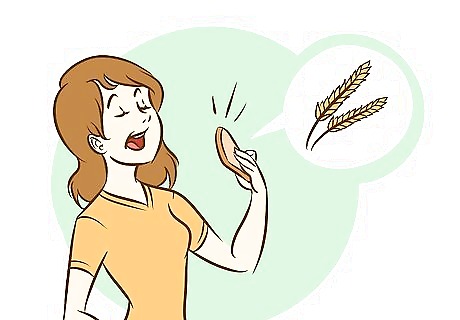
Get more dietary fiber into your body. Fiber pushes toxins through your digestive system faster, so those toxins spend less time festering in your liver. Many fruits and vegetables are a good source of fiber. Whole grains and seeds are another excellent source of fiber. Flax seeds can be especially beneficial since they bind specifically to potentially harmful hormonal excesses and help flush them out of your system more effectively. Increase flax intake. "The article gave me new information I didn't know, like how flaxseed helps suck up extra hormones. As a female struggling with high testosterone and trying to improve my fertility, this really helped me. I also learned that an enzyme called serrapeptase knocks down inflammation and eats away scarring or fibrosis." - Amber L. Drink coffee regularly. "I rarely drink alcohol and was surprised when my ALT level in my liver function test had risen to 118. I had just stopped taking antidepressants and my ALT level has started to decrease. In the past 9 months it has come down to 89. However, my last test, 3 months later, was 89. I was so disappointed, as I had given up tea and coffee just to be healthier. This article recommended that coffee can help lower ALT levels. So, I started having coffee every second day and saw another decrease in my ALT." - Antonette D. Have a story our readers should hear? Share it with 1 billion+ annual wikiHow users. Tell us your story here.
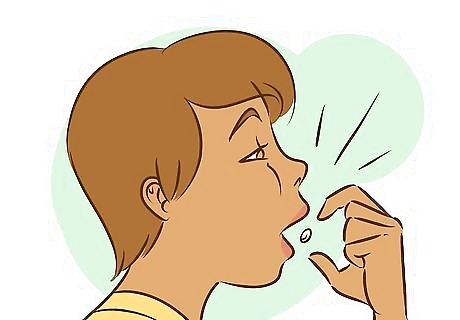
Use dietary supplements with caution. While some herbal remedies claim to restore liver health and improve ALT levels, there is often very little research to support these claims. Some herbal remedies and supplements can even hurt the liver and worsen your ALT amount. Talk to your doctor before taking any herbal remedy or remedy combination. Herbs linked to liver problems include cascara, chaparral, comfrey, kava kava, and ephedra. Milk thistle seed extract is one herbal supplement believed to promote liver health. Other supplements include fish oil, green tea extract, curcumin (found naturally in turmeric), alpha lipoic acid, and acetyl-L-carnitine.
Lifestyle

Exercise regularly. Exercise improves your overall health, so naturally, regular cardiovascular/aerobic exercise can also help improve your liver health and ALT levels. Studies suggest that staying active for a minimum of 150 minutes per week can improve liver enzymes like ALT in the average adult. Exercise can help you shed excess weight and limit the amount of fat entering your liver. It can also encourage sweat, which is part of your body's natural detoxification defenses. Even just walking for 30 minutes a day can help. You can break this up into 2 sessions of 15 minutes each.
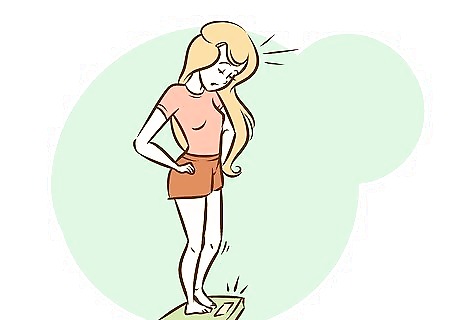
Lose weight, if necessary. Obesity can cause fat to infiltrate the liver cells, and when this happens, your liver can become inflamed. The best way to lose weight is to do it gradually through a healthy diet and regular exercise. Losing weight too quickly through crash diets and radical procedures can put stress on your body and its organs, ultimately causing more problems than you started with.
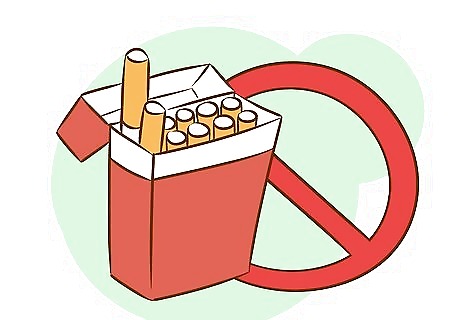
Quit smoking, if applicable. Chemical additives found in cigarettes often contain toxins that damage your liver cells when your liver attempts to filter them. Quit smoking the strengthen your liver and improve your ALT levels. Similarly, you should also avoid second-hand smoke, since you can breathe most of these harmful toxins in and face the same danger.
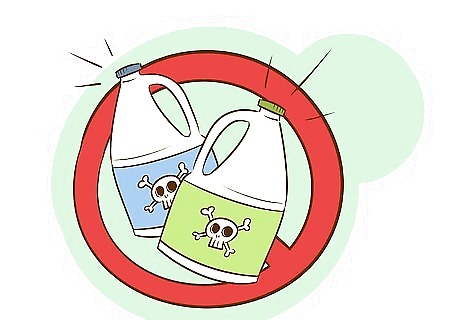
Avoid chemical toxins in your environment. Many household chemicals also contain toxins that can damage the liver, so limiting your exposure to these chemicals can improve your liver health and your ALT levels. These toxins can be found in many cleaning products, aerosol products, and insecticides. Swap out chemical household products for natural products. When possible, use natural alternatives already available in your home, like using vinegar to whiten your clothes instead of bleach. There are also commercial products labeled as "natural" that may be worth checking into. If you must use these chemicals to clean, wear rubber or nitrile gloves as you do so to protect your skin.
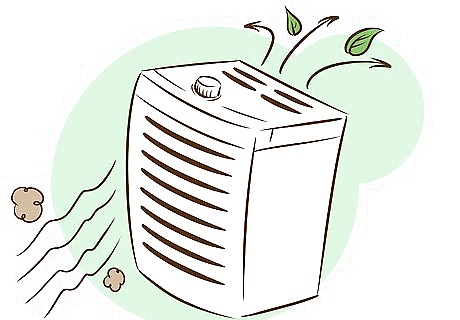
Invest in an air purifier. A small air purifier can help filter out air pollution in your home. By filtering toxins out of the air you breathe, you limit the toxins passing through your liver. This can be especially important if you live in a high-traffic area. For the best results, use a high-efficiency particulate air (HEPA) air filter. These are widely available wherever filters are sold.
Medical Issues
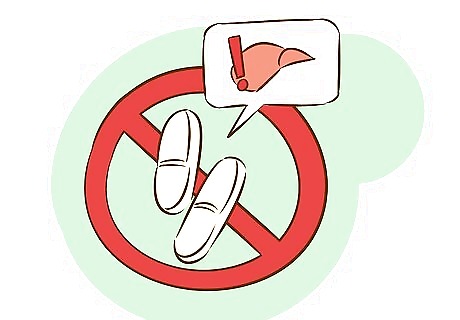
Avoid medications linked to liver damage. Certain medications and medication combinations can cause damage to the liver, especially when taken regularly for an extended time. To improve your ALT levels, stay away from drugs known to weaken the liver. Acetaminophen can be toxic to the liver when taken in excess. Aside from being marketed as a separate painkiller, it is also found in many cold medicines and prescription pain medications. Other pain medications can have similar consequences, including aspirin, diclofenac, and naproxen. Cholesterol drugs can also harm the liver, but you should talk to your doctor before you quit taking a prescription cholesterol medication. Additional drugs that may cause elevated ALT levels include some antibiotics (sulfonamides, nitrofurantoin), tuberculosis medications (isoniazid), anti-fungal medications (fluconazole, itraconazole), seizure medications (phenytoin, carbamazepine), and tricyclic antidepressants. Statins, chemotherapy, narcotics, and barbiturates can cause elevated ALT levels, as well. If you are already taking medications, talk to a doctor or pharmacist before starting a new medication to verify that the interaction with your current medications will not hurt your liver. If you prefer natural remedies, you can consult a holistic medicine practitioner. Just make sure to talk to your primary doctor as well to make sure that these remedies are safe for you.
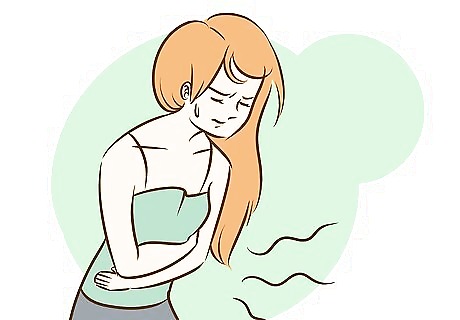
Treat underlying causes. High ALT levels are not necessarily harmful on their own, but they often indicate that something is wrong with your liver. To lower your ALT levels long-term, you need to treat any diseases that could be hurting your liver. Hepatitis is a major cause of elevated ALT levels. This includes acute viral hepatitis (both A and B) and chronic viral hepatitis (both B and C). If you are worried about hepatitis, ask your doctor for a blood test. Cirrhosis can also cause high ALT levels. This occurs when the liver experiences scarring due to prolonged inflammation. Fatty liver disease can cause elevated ALT levels, as well, especially alcoholic fatty liver disease. Hemochromatosis has also been known to cause high ALT levels. This is a genetic condition caused by iron build-up in the liver. Diminished blood flow to the liver will also elevate your ALT levels. Usually, this occurs when you undergo shock or heart failure. Less common medical conditions linked to elevated ALT levels include wild mushroom poisoning, Wilson's disease, liver cancer, autoimmune hepatitis, pregnancy, inflammatory bowel diseases, gallstones, and alpha-1-antitrypsin deficiency.




















Comments
0 comment